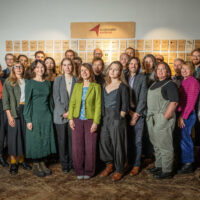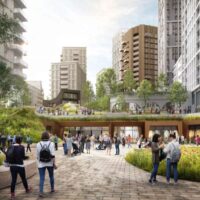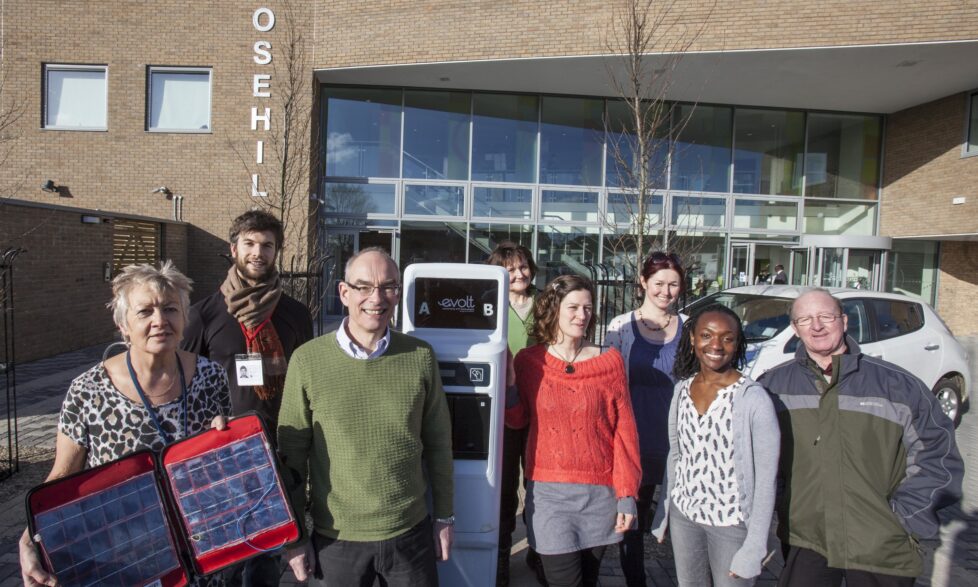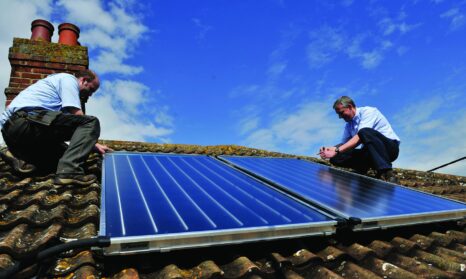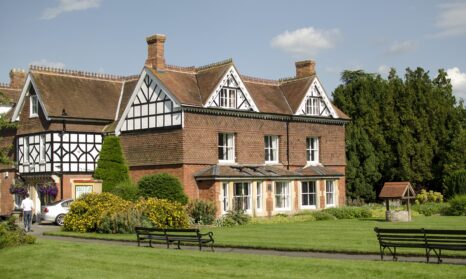Creating a smart local grid in Oxford
How to manage local electricity generation?
When a landlord, a developer, a community organisation wants to install a large quantity of PV panels on the roofs of homes and other buildings, it often encounters an impasse.
There will be times when the PV panels generate more power than the buildings beneath them require. The costs of reinforcing and adapting the local electricity grid to cope with the resulting exports of solar electricity are charged to the development project. When these costs run into £100,000s or more they can destroy its commercial viability.
Domestic batteries can help
One solution is to consume as much of the PV power as possible locally, using batteries to store it on site. When the sun shines, surplus low voltage direct current (DC) from the PV panels is used to charge up the batteries. When there is high power demand and little or no sunshine, the batteries can be used to supply household electricity and even export power into the local grid for neighbouring buildings.
The electricity from the batteries can be turned into the standard alternating current used in our homes, or remain as low voltage DC used to power highly efficient LED home lighting and to run or recharge electronic devices such as smart phones and laptop computers.
The system relies on computer software to control the flows of power between the PV panels, the battery storage, the household switchboard (or consumer unit) and the local grid. It cuts peak levels of solar electricity exports from homes while reducing imports from the grid.
Partnering with smart DC experts Moixa
Through a £1.2m partnership project led by smart DC pioneers Moixa Technology and funded by government innovation agency Innovate UK, Bioregional participated in a 33 month project examining how solar-generated electricity can be stored locally. It took place in Rose Hill, a community with high levels of deprivation in east Oxford.
A primary school, the local community centre and 84 homes (48 from Oxford City Council, 28 from housing association GreenSquare Group and the remaining eight owner occupied) took part in Project ERIC (Energy Resources for Integrated Communities). It installed PV arrays, batteries and the accompanying computer and web technologies required to keep track of the locally generated and stored electricity plus imports and exports.
Bioregional facilitated the partnership which brought the project to Rose Hill and was responsible for all of the community engagement aspects.
Demonstrating the potential for trading energy between neighbours
The project demonstrated that solar PV combined with battery storage could increase the amount of locally generated solar electricity used within the community rather than being exported. In summer, 51% of the electricity generated by the PV panels was used within those homes, with the remainder being exported. The batteries increased this 'self-consumption' of solar power by 6%.
Project ERIC also helped demonstrate the potential for homes with PV panels and storage batteries to trade electricity with nearby homes without PV panels. Both sides of the trade could benefit from being part of a virtual local electricity grid, saving money compared to buying (or selling) power from (or to) the grid. This could be especially helpful in neighbourhoods where flats are mixed with houses, where the flats are short of rooftop space for PV panels. Read Oxford Brookes University's summary of the project
About our partners
Moixa Technology is a leading pioneer of Smart DC (Direct Current) technologies which aims to change the way we produce and use electricity. Its ambition is to power the future efficiently and affordably, to help keep the lights on and electronics online, at the lowest possible price and carbon use.
The Oxford Institute for Sustainable Development (OISD) at Oxford Brookes University is one of the UK’s largest research institutes dedicated to sustainable development research in the build and natural environments.
Oxford City Council provided homes for Project ERIC, financed the installation of PV panels and took on the batteries as long term assets.
ReEnergise are energy consultants and project managers who analysed the finances of PV panel and battery installations for this project.

